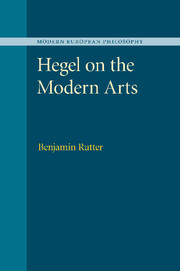Summary
Like many people I know, I enjoy the work of the literary critic James Wood, and I have enjoyed it all the more since coming to think of him as the contemporary critic closest in spirit to what I think of as Hegel's philosophy of art. On the one hand, Wood has developed or revived certain critical views with clear antecedents in Hegel's lectures. His account in The Irresponsible Self of the distinction between what he calls the comedy of forgiveness and the comedy of correction, for example, and of the superiority of the former to the latter, closely resembles Hegel's own effort to distinguish the reconciling power of Aristophanic laughter from the cynicism of, for instance, Molière. Meanwhile, the defense of a modest literary realism articulated in the Broken Estate and expanded in How Fiction Works – an account of fiction's origins in and responsibility to the real world that manages to acknowledge the ultimate artifice and unreality of the form – strikes just the sort of balance Hegel sought between the competing demands, in his own era, of artistic virtuosity and a sort of bourgeois naturalism. Wood himself, who refers to Hegel only occasionally, would no doubt be surprised to learn this. And there are of course endless ways in which they differ.
- Type
- Chapter
- Information
- Hegel on the Modern Arts , pp. 1 - 5Publisher: Cambridge University PressPrint publication year: 2010

